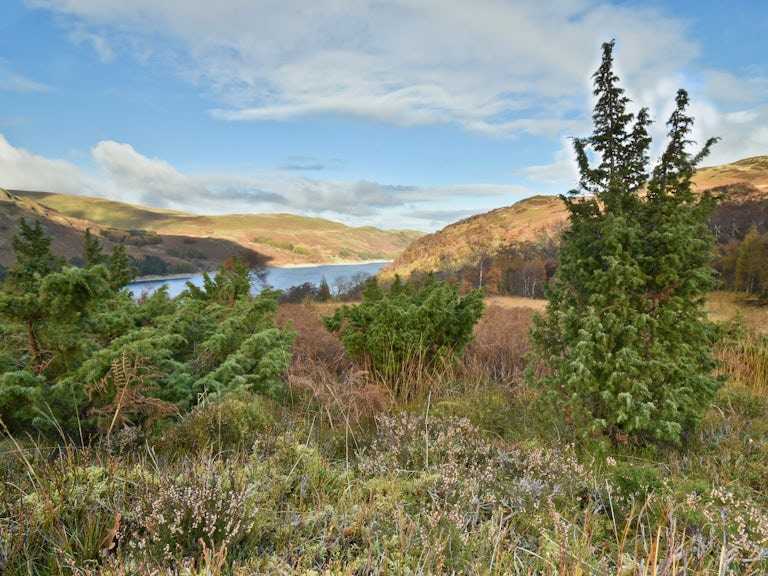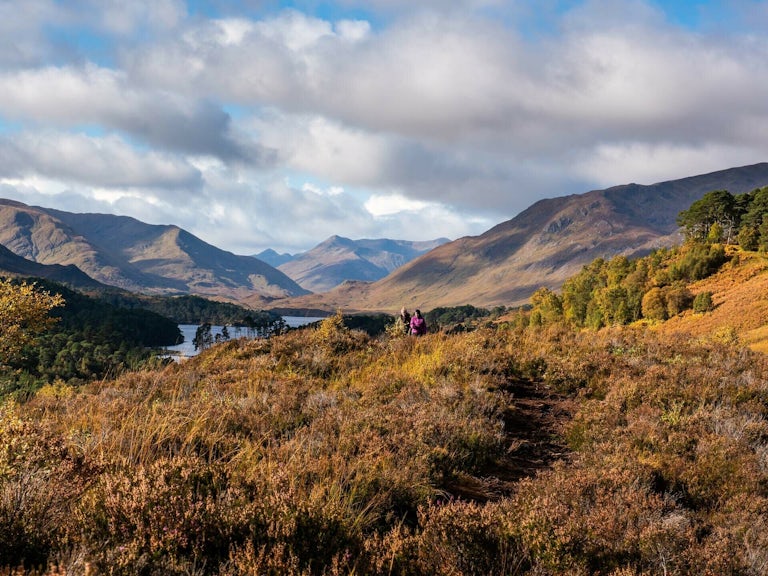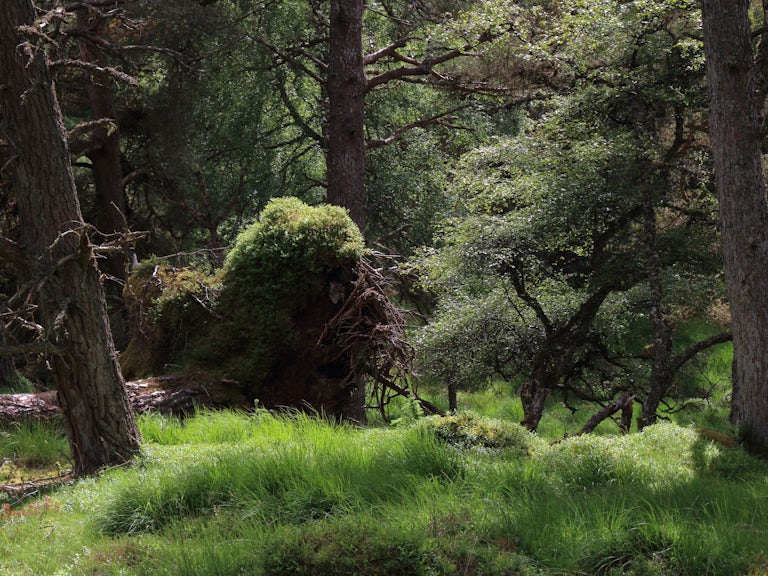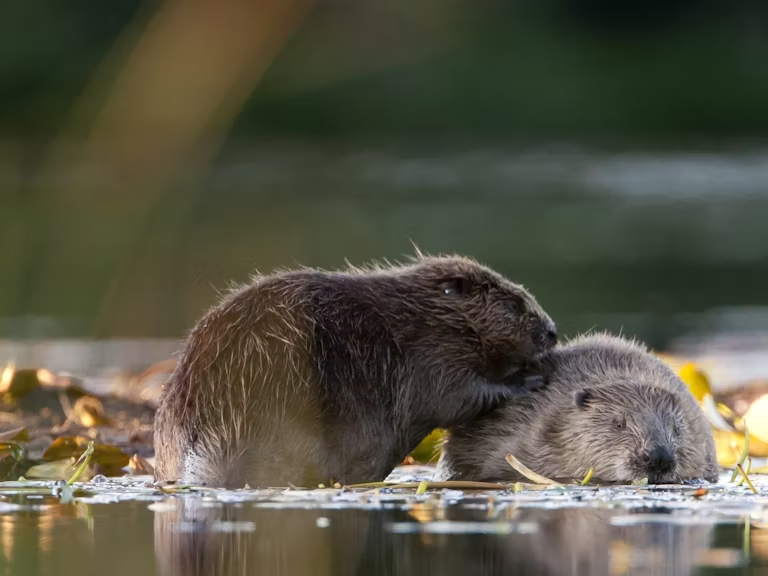Nature recovery could avert wildlife catastrophe
Britain‚Äôs climate zones are shifting by up to five kilometres a year due to rising temperatures which could have catastrophic impacts for wildlife, says a new report by ∫⁄¡œ’˝ƒÐ¡ø.

The shift – due to human-caused climate heating, and hundreds of times faster than the country’s natural climate warming at the end of the last ice age – is set to outpace many species’ ability to adapt and adjust their ranges.
But ∫⁄¡œ’˝ƒÐ¡ø‚Äôs research also shows that a massive increase in restoring and connecting species-rich habitats across at least 30 percent of Britain‚Äôs land and sea by 2030 could help save a fifth of species from climate-driven habitat loss, decline or extinction.
The charity is calling for the creation of core rewilding areas across at least five percent of Britain, with a rich mosaic of nature-friendly land and marine uses across another 25 percent of the country.
‚ÄúNature is our life support system and it‚Äôs at risk. We urgently need to kick-start a new era of rewilding and nature restoration to match the growing tsunami of climate heating and species extinction,‚Äù said Rebecca Wrigley, ∫⁄¡œ’˝ƒÐ¡ø‚Äôs Chief Executive.
“We can only thrive if nature thrives, so we need to think big and act wild, with radical change in how we manage land and sea to halt and reverse biodiversity declines, and tackle climate breakdown.”
Climate zones comprise an area’s temperature, humidity, precipitations and seasons – helping determine the distribution of species and habitats. Such zones shift naturally, but human-driven climate heating – increasingly recognised as the greatest future threat to biodiversity – is causing much more rapid disruption and triggering severe climatic changes.
The estimated shift in Britain‚Äôs climate zones is part of a pattern in which such zones across the northern hemisphere are moving northwards, and upwards in elevation, at an unprecedented rate. ∫⁄¡œ’˝ƒÐ¡ø‚Äôs calculations are based on an analysis of existing research by leading experts.
For many plants and animals, surviving such rapid change will partly depend on their ability to move their ranges to more hospitable areas. Those that can’t move across land or sea at roughly the same rate as their climate zone are likely to decline and be at increased extinction risk.
∫⁄¡œ’˝ƒÐ¡ø says Britain‚Äôs severely depleted wildlife and crumbling biodiversity is in no fit state to withstand climate heating‚Äôs shocks, which also include sea level rises and extreme weather patterns such as fires, floods and droughts.
Although Britain should be teeming with wildlife, populations of species – from songbirds to insects to plankton – are collapsing, with some 56 percent in decline and 15 percent threatened with extinction.
Britain’s network of often-degraded protected areas is also too small and fragmented to offer enough habitat for most species to move to, and may end up being no longer in the climate zones for most species they are intended to protect. Connectivity to help species move their range is also threatened by intensification of activities such as farming, forestry and fishing.
30%
by 2030
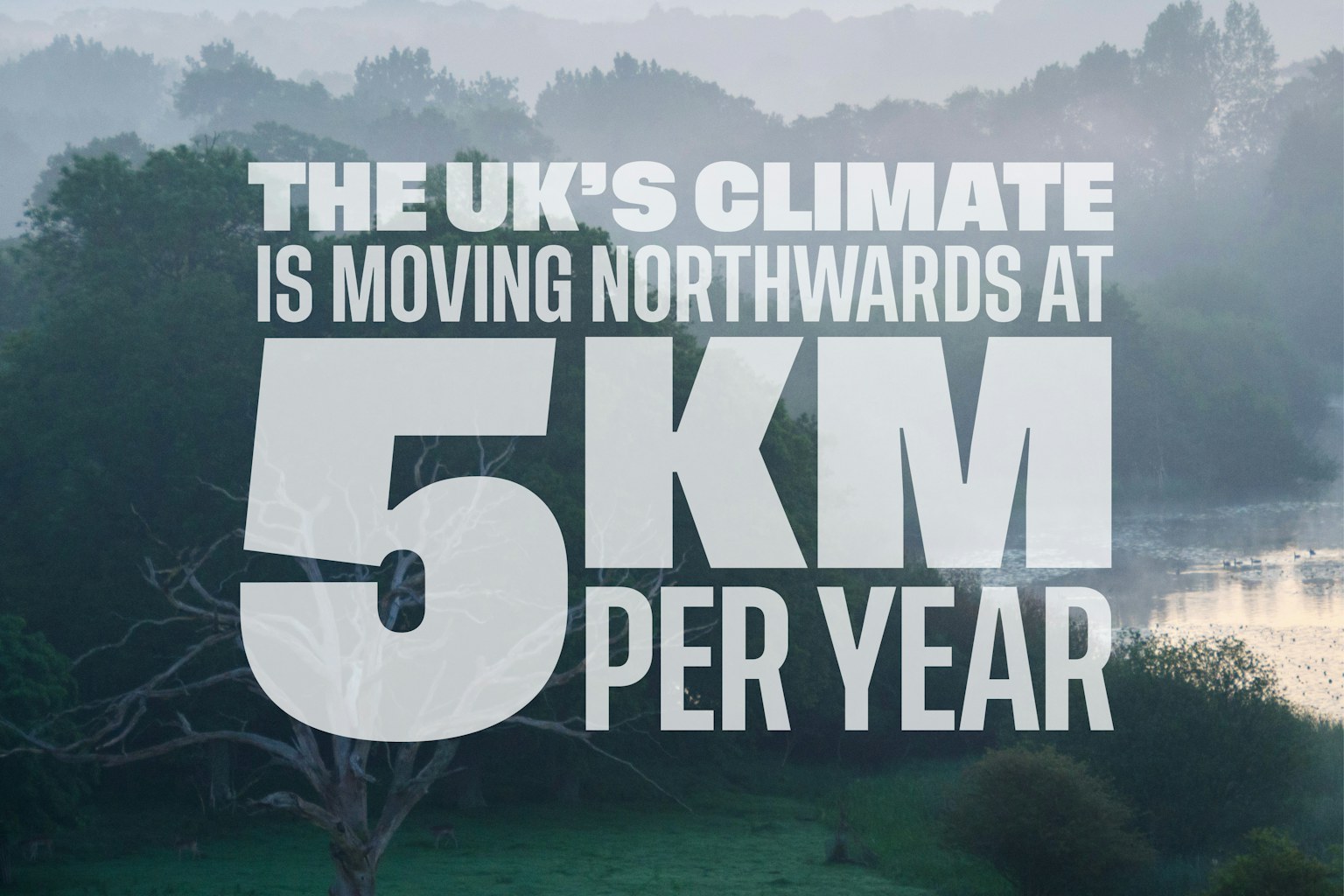
“Our report is a rallying call for coordinated, locally led action from communities, farmers, businesses, big landowners, volunteer groups, local authorities and national governments to help build a better, more resilient future by rapidly expanding nature‚Äôs recovery”
Rebecca Wrigley
CEO, ∫⁄¡œ’˝ƒÐ¡ø
56%
of British species in decline
∫⁄¡œ’˝ƒÐ¡ø‚Äôs proposal for a network of core rewilding areas across five percent of Britain would restore as many natural processes, habitats and related species as possible ‚Äì with a mix of native forest, peat bogs, moorlands, heaths, grasslands, wetlands, saltmarshes, kelp beds, seagrass and living reefs, and without loss of productive farmland.
These rewilding areas should be embedded in nature-enhancing landscapes across at least another quarter of Britain’s land and sea – with activities such as low-impact mixed forestry, natural product harvesting and nature-based tourism, and with the Government providing financial incentives for wildlife-friendly and regenerative farming, including through its Environmental Land Management Scheme for England and similar schemes in Scotland and Wales.
Such landscapes would act as ‚Äã‚Äònatural dispersal corridors‚Äô, allowing species to move as the climate heats. They would also soak up atmospheric carbon. ∫⁄¡œ’˝ƒÐ¡ø‚Äôs previous research has shown how extensive rewilding could reduce the UK‚Äôs annual greenhouse gas emissions by at least 10 percent.
Taking no set path, these corridors would connect, enhance, restore, and expand Britain’s most important habitats, using the core rewilding and protected areas as stepping stones for nature.
In its role as a catalyst to mobilise and support a movement of locally led rewilding action and the myriad of nature recovery initiatives emerging countrywide, next month ∫⁄¡œ’˝ƒÐ¡ø will launch the Rewilding Network ‚Äì a decentralised hub bringing together and offering advice to thousands of people who are considering or already rewilding.
The charity‚Äôs newly relaunched website ∞˘±∑…汱٪‚Äãi≤‘≤µ‚Äãb∞˘æ±‚Äãt≤πæ±≤‘‚Äã.¥«∞˘≤µ‚Äã.≥Ð∞Ï provides information for people to start or continue their own rewilding journeys, whether on a large-scale or in gardens and communities.
∫⁄¡œ’˝ƒÐ¡ø is also calling on the UK Government to enshrine the Prime Minister‚Äôs recent promise to protect 30 percent of the country‚Äôs land by 2030 in a clear regulatory framework through the upcoming Environment Act, with sufficient funding and with rewilding becoming a key land use.
∫⁄¡œ’˝ƒÐ¡ø‚Äôs new report, ‚Äã‚ÄòAdapting to climate heating: How rewilding can help save Britain‚Äôs wildlife from extinction during the climate emergency‚Äô, can be downloaded from the charity‚Äôs website.
∫⁄¡œ’˝ƒÐ¡ø wants rewilding ‚Äì the large-scale restoration of nature so that it can take care of itself ‚Äì to flourish across Britain to reconnect people with the natural world, sustain communities, and tackle the extinction and climate crises.
